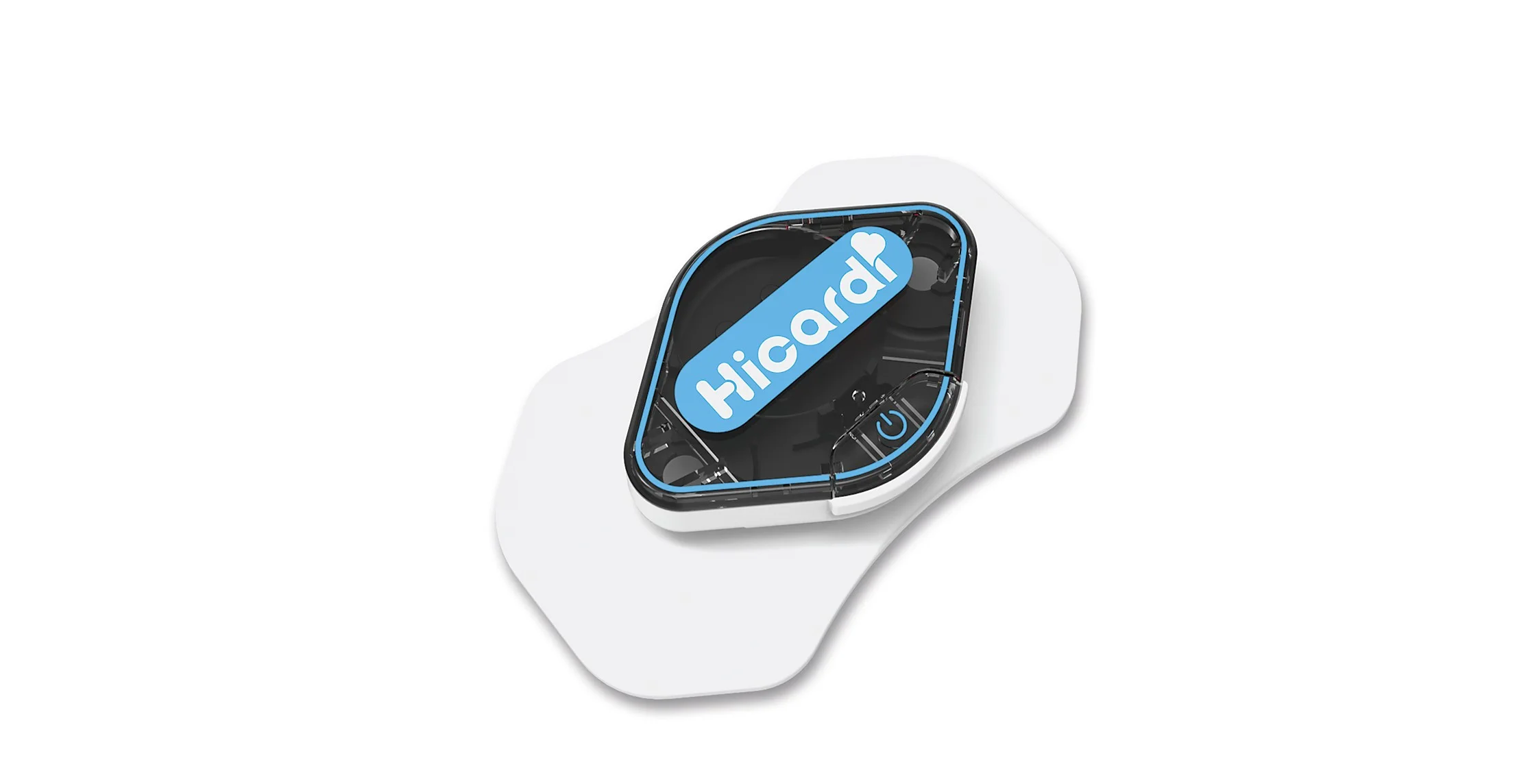Wearable ECG monitor enables remote care of cardiac patients
Bluetooth LE-powered monitoring system allows healthcare professionals to review electrocardiogram and arrhythmia diagnosis data in ‘real time’
Heart health is a major indicator of overall well-being. The body needs a robust heart pumping blood effectively to supply vital oxygen and nutrients to thrive. Compromised heart health can lead to a range of disorders and even death. But technology can be used to monitor an at-risk person’s heart health on an ongoing basis to help reducing cardiac risk factors and provide early warning of problems.
Korea-based digital healthcare solutions manufacturer, MEZOO, has designed a wearable electrocardiogram (ECG) monitoring system that helps individuals monitor their own heart health, while also supporting remote patient monitoring and telehealth applications. HiCardi is a chest-worn device that measures vital signs including one channel ECG, heart rate, body temperature, respiration rate and body posture. Without the user intervention, the device continuously checks for cardiac abnormal symptoms and if any are detected they are classified into 17 types of heart arrhythmias. (Irregular heart rhythm.)
Comprising a lightweight wearable ECG tag incorporating a Nordic nRF52832 SoC, a smartphone app and a Cloud-based platform, HiCardi is designed to offer a simple and efficient mobile cardiac telemetry (MTC) solution for patients and healthcare facilities. The HiCardi tag features an 8g, slim-profile adhesive patch allowing it to be placed on a patient’s chest for continuous monitoring. It is suitable for bedside monitoring or in place of an ECG Holter device. Another important use case is to look for signs of cardiac stress during kidney dialysis.

The wearable monitoring system provides ‘real time’ ECG/vital signs data for medical professionals
In addition, users can share the recorded ECG with family and friends, while freeing themselves of worry about pain or side effects by eliminating the requirement for invasive testing. And in the current global environment impacted by the COVID-19 pandemic, a wearable solution that checks the condition of people in their own homes and reports to remote healthcare professionals is beneficial.
Using Nordic SoC-enabled Bluetooth LE connectivity, the analyzed ECG/vital signs data is wirelessly transmitted from the HiCardi device to the user’s smartphone, where the iOS and Android HiCardi app displays all the relevant heart health information. Along with the user’s location, this data is also sent to the Cloud for review and analysis by healthcare professionals through the HiCardi web platform.
The platform enables the continuous real-time monitoring of the ECG waveform and arrhythmia diagnosis information from different HiCardi devices simultaneously on a single screen. Doctors are therefore able to oversee reports on the heart health of multiple patients simultaneously, including those in intensive care units (ICUs), the hospital’s general and geriatric acute wards and patients staying at home. Conventional patient monitoring devices are typically too large and expensive to be used for non-ICU patients.
Nordic-powered ‘real time’ data recording
For the HiCardi tag to continuously record the ECG waveform data and detect arrhythmia in ‘real time’ at the device, HiCardi relies on the processing power provided by the Nordic SoC’s 64MHz, 32-bit Arm Cortex M4 processor. The SoC’s processor, together with its generous memory allocation of 512kB Flash memory and 64kB RAM, supports the application’s complex floating point and digital signal processing computations. Moreover, the ultra-low power characteristics of the Nordic SoC—built on features like the 2.4GHz radio’s 5.5mA peak RX/TX currents and a fully-automatic power management system—enable the device’s 50mAh Li-Poly battery to power the tag for at least 16 hours of battery life between recharge.
“The most important things are accuracy and reliability in the medical device field and that is the reason we selected Nordic. It enables HiCardi to capture, diagnose and transmit ECG data in real time,” says Junghwan Park, Ph.D. the CEO of MEZOO.
“Because HiCardi has to process ECG data in real time on a tiny tag, that creates many challenges around memory capacity, processing capability, and power consumption, but Nordic’s nRF52832 SoC was the ideal solution.”
According to the company, HiCardi is approved by the Ministry of Food and Drug Safety (MFDS) in Korea, and will be available in Q3, 2020 in Korea and in Q4, 2021 in the U.S.